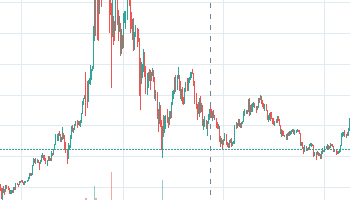Blockchain is one of the more mysterious technological innovations of our time. While lots of people have heard of blockchain by now, few people understand how they work. Blockchain is regularly conflated with cryptocurrencies, but they are in fact two distinct technologies. Cryptocurrencies are just one implementation of blockchain technology and, similarly, represent only one of the ways that blockchain can transform the power industry.
Blockchain and the Power Industry
There is undeniably a lot of hype surrounding blockchain. To hear some of its strongest proponents discussing it, you would think that businesses and governments would be falling over themselves in their rush to utilize blockchain for themselves. However, many of the theoretical use cases for blockchain run into issues when we try to apply them to real-world situations.
There are a number of reasons that the power industry is one of the few not only ready for a blockchain-driven transformation but in the ideal state for such a transformation to take root.
Why Now?
First of all, off-grid energy – energy that people are generating for themselves – is on the brink of attaining cost and performance parity with energy delivered from the grid. Solar panels are proliferating at an extraordinary rate and represent a better deal with each passing year. In fact, because of a combination of other factors, the costs of distributing energy throughout the grid will soon cost more than generating and storing energy locally.
Finally, the gradual shift towards electric vehicles will give a lot of businesses that have so far been reticent when it comes to renewable energy a fresh impetus. Consumers are buying electric vehicles for their environmental benefits, but these are lost if the electricity they run on is not generated from renewable sources.
How Will Blockchain be Used?
Blockchain is already being used in the energy sector. For example, there have been a few attempts at launching cryptocurrencies that award coins to users for every unit of energy they generate. This is a potentially very important avenue going forward. By combining cryptocurrencies with energy generation, homeowners can earn money for the energy they generate. In the future, it’s not inconceivable that datasheets of electronic components could contain information about the cryptocurrencies that they support.
As well as being used at the point of delivery to the customer, blockchain could also play a pivotal role at the point of origin. Other than cryptocurrencies, one of the most significant current uses of blockchain is as a virtually incorruptible database. This makes it ideal for supply-chain verification.
Smart contracts, which are automatically executed when certain conditions are met, can be used to ensure that electricity and payments are distributed fairly and appropriately. This will be significant if we are to one day move to a decentralized system of power generation.
Blockchain technology could have a transformative effect on a number of industries and utilities. The power industry is particularly well-suited to this change because it is already undergoing a series of unrelated transformations. From cryptocurrencies to supply-chain verification, blockchain has a lot to offer the power and energy industry.


 Updated every 10 minutes
Updated every 10 minutes


